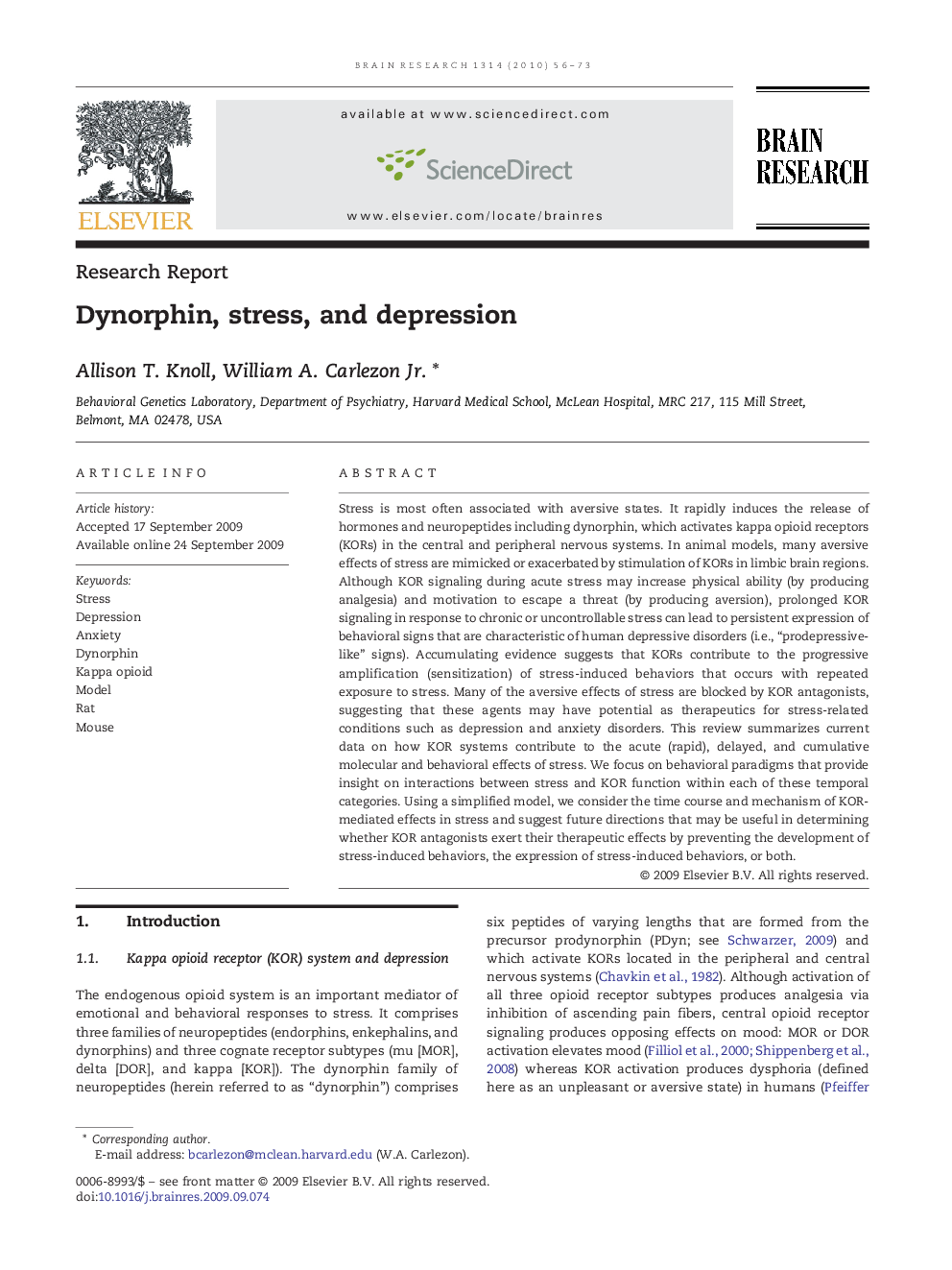| کد مقاله | کد نشریه | سال انتشار | مقاله انگلیسی | نسخه تمام متن |
|---|---|---|---|---|
| 4327374 | 1614125 | 2010 | 18 صفحه PDF | دانلود رایگان |

Stress is most often associated with aversive states. It rapidly induces the release of hormones and neuropeptides including dynorphin, which activates kappa opioid receptors (KORs) in the central and peripheral nervous systems. In animal models, many aversive effects of stress are mimicked or exacerbated by stimulation of KORs in limbic brain regions. Although KOR signaling during acute stress may increase physical ability (by producing analgesia) and motivation to escape a threat (by producing aversion), prolonged KOR signaling in response to chronic or uncontrollable stress can lead to persistent expression of behavioral signs that are characteristic of human depressive disorders (i.e., “prodepressive-like” signs). Accumulating evidence suggests that KORs contribute to the progressive amplification (sensitization) of stress-induced behaviors that occurs with repeated exposure to stress. Many of the aversive effects of stress are blocked by KOR antagonists, suggesting that these agents may have potential as therapeutics for stress-related conditions such as depression and anxiety disorders. This review summarizes current data on how KOR systems contribute to the acute (rapid), delayed, and cumulative molecular and behavioral effects of stress. We focus on behavioral paradigms that provide insight on interactions between stress and KOR function within each of these temporal categories. Using a simplified model, we consider the time course and mechanism of KOR-mediated effects in stress and suggest future directions that may be useful in determining whether KOR antagonists exert their therapeutic effects by preventing the development of stress-induced behaviors, the expression of stress-induced behaviors, or both.
Journal: Brain Research - Volume 1314, 16 February 2010, Pages 56–73